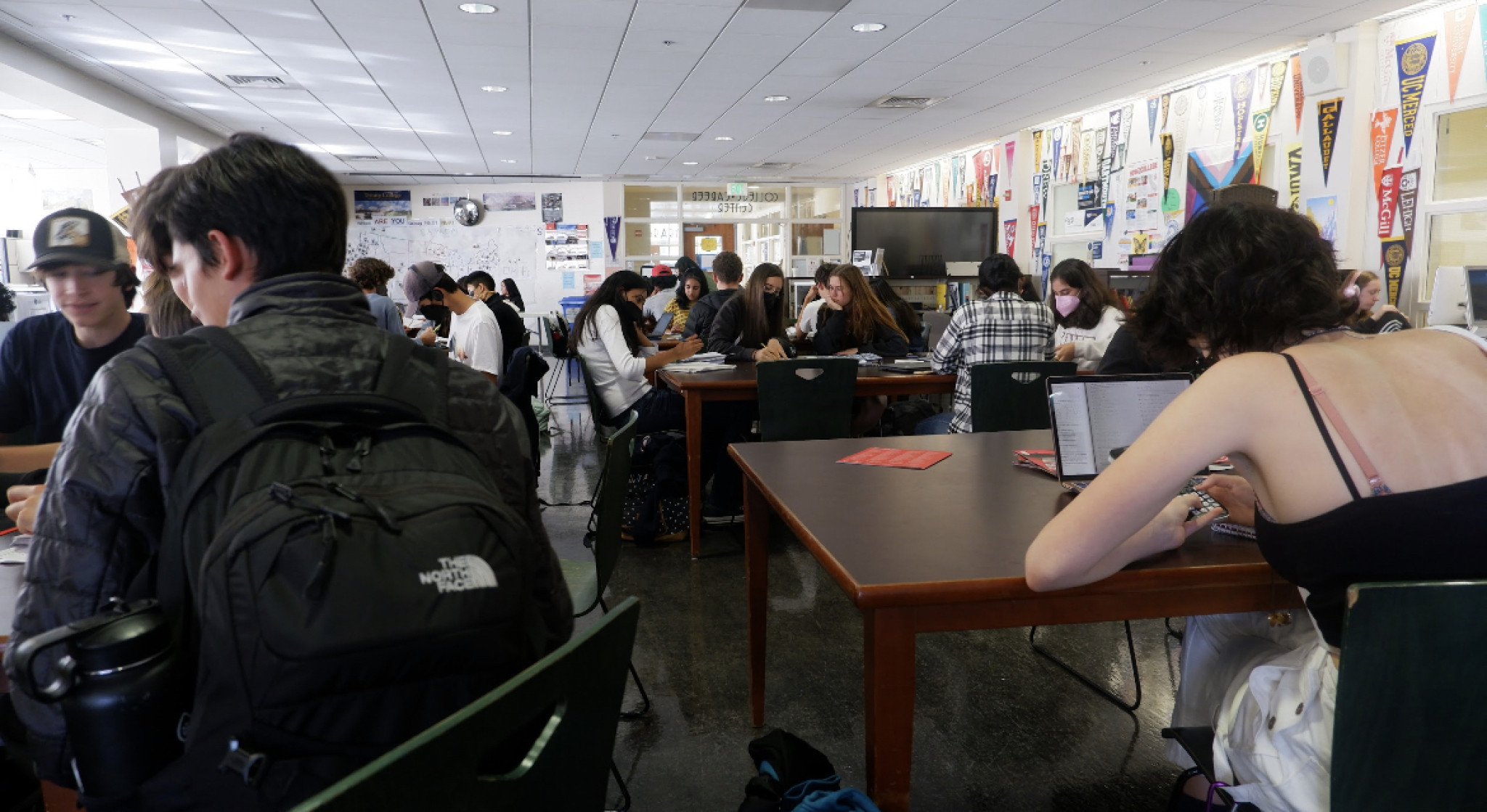This year, Berkeley High school has initiated the Academic Intervention Program, as well as the implementation of new detention and tardy policies. These have increased student attendance by a large margin, according to Cassandra Tesch, BHS Dean of Attendance.
Though Tesch has only recently taken on this role, she has made several changes. In accordance with the new tardy policy, the gates are locked in the mornings, and students are required to enter through the main office and scan their student IDs if they arrive tardy to school. Additionally, mandatory tutorial sessions are being held for students with three or more unexcused absences after five days, over 20 unexcused tardies, or a record of cutting class.
Students who do not follow through with the tutorial sessions will be assigned to mandatory Saturday school, and those who do not attend these sessions will be placed on the no-go list for school-wide events like games, homecoming, prom, and work permits.
Tesch described both Saturday school and the tutorial sessions as an “opportunity” by which students can recover their absences, allowing them to clear at most 12 absences in a given month. She also said that she is currently working on lowering the number of students who arrive late to 4th period, hiring additional OCI (On Campus Intervention) staff for more detention sessions.
“There is still an attendance issue that many staff are upset about and that is the number of students who arrive late to 4th period,” Tesch said. “We are in the process of hiring an additional staff member to support with OCI, who would support a lunch time specific detention in the traditional sense only for students who are tardy to 4th period.”
She expressed her desire to support students, in boosting their attendance records and academics.
“We know that things come up that impact students’ ability to come to school and we want to find restorative and positive ways to support students that will not just help their attendance records, but will support their academics as well,” Tesch said.
However, according to Savannah Johnson, a junior at BHS, the new tardy policy is contradictory. Under the policy, students must have their student ID scanned at the front entrance before they enter the school, but long lines for this process have further delayed students arriving late.
“It makes no sense whatsoever,” Johnson said. “If the policy is trying to keep people in class, then why is it purposely delaying students from going to their classes?”
Johnson added that the policy has created additional stress, potentially causing students to miss a significant amount of classwork.
“Now, on top of the stress of getting to school on time to not get a tardy, there is an additional stress that if I’m not directly on time, I’m not only going to miss a couple of minutes, I might miss 30 minutes of class just waiting in line to sign in,” Johnson said. “Missing five minutes of class doesn’t have a real impact on your education, but missing 25 minutes does.”
Johnson proposed that the school add more entrances, as this would substantially decrease the time students spend waiting in tardy lines.
Jonathan Schwartz, another junior, hypothesized that detention previously existed at BHS, and explained that the new policies are outdated and harmful to students, especially given rampant student mental health issues. “(Detention) is a draconian step backwards,” Schwartz said. “Especially in a time where student mental health is such a huge problem for all the students at BHS, forcing students who already clearly don’t fit in with a school structure to spend more time on campus as a punishment, I don’t think it’s the right decision.”
He explained that detention is not the right approach, and suggested that BHS find new solutions.
“Berkeley is such a progressive place that always wants to go forward with new ideas,” Schwartz said. “Detention is an old school idea, and there are much better ways that we can address the problem.”





